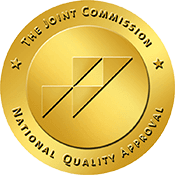Making the decision to stop drinking is a powerful step toward reclaiming your health and well-being. For many, the first few days can be the most challenging part of the recovery process as the body and mind begin adjusting to the absence of alcohol. The first 72 hours after quitting drinking are particularly significant, as this is often when withdrawal symptoms are at their most intense.
Understanding what to expect and preparing for those challenges can make a world of difference in how you approach this critical time. It can also illustrate the need for a professional alcohol detox center to get through this challenging process.
What to expect during the first 72 hours
When you stop drinking, your body begins to work hard to regain its natural balance. Alcohol impacts nearly every organ, and when it’s suddenly removed, your system may respond with varying degrees of withdrawal symptoms. These can range from mild discomfort to more serious physical and mental challenges, depending on the severity of the alcohol dependence.
Day 1 (0–24 Hours)
Within the first six to 12 hours after your last drink, withdrawal symptoms often begin. Common physical symptoms of alcohol withdrawal include:
- Sweating
- Trembling
- Headaches
- Nausea
- Insomnia
Many people also experience alcohol withdrawal mental symptoms during this time, such as feelings of anxiety, irritability, or restlessness. Understanding that these symptoms are your body’s way of starting the detox process can provide some reassurance, but it’s important to remain vigilant, as symptoms may intensify.
Day 2 (24–48 Hours)
By the second day, alcohol withdrawal symptoms usually peak. This means that anything experienced on the first day may feel more severe. People might experience stronger symptoms like rapid heart rate, confusion, and in some cases, seizures. Psychologically, anxiety and agitation may also escalate during this period.
This “peak” can be challenging to face alone. That’s why a supervised detox program, such as a three-day alcohol detox offered at professional centers like Tide Edge Detox Center, is highly recommended for safety and support.
Day 3 (48–72 Hours)
The final stretch of the 72 hours after quitting drinking can feel intense, both physically and emotionally. For some, this marks the culmination of the detox process when symptoms are at their most acute. Others may experience the onset of severe complications, such as delirium tremens (DTs), a potentially life-threatening condition characterized by confusion, rapid heart rate, and fever.
The emotional toll of alcohol withdrawal mental symptoms, including depression or mood swings, may also become more pronounced. By this stage, having access to medical professionals and emotional support is important for safely navigating the final hours of acute detox.
The importance of professional detox
Going through a three-day alcohol detox is not something you need to face alone. For people with a history of heavy drinking, withdrawal symptoms can pose serious risks, making professional supervision essential. At a licensed center like Tides Edge Detox Center, the detox process is carefully managed to provide both safety and comfort. Medical professionals can provide medications to help alleviate symptoms, monitor your progress, and intervene immediately if severe complications occur.
Furthermore, being in a supportive environment can ease the psychological burden of withdrawal. Knowing that experienced, compassionate staff are there to guide you every step of the way can make what feels like an impossible challenge more manageable. A structured program also allows for a smoother transition into long-term treatment options, such as alcohol rehab in Jacksonville FL, means that you receive the care and resources necessary to maintain sobriety.
Physical and mental changes during detox
Alcohol affects both the body and the mind, and its absence leads to changes in both areas. Physical symptoms of alcohol withdrawal can include everything from muscle aches and fatigue to more severe issues like seizures. While every person’s experience varies, it’s important to know that these symptoms are temporary and can be managed through expert care.
Equally challenging are the alcohol withdrawal mental symptoms that can arise. Anxiety, fear, and depression are common as your brain adjusts to functioning without alcohol. These feelings can be unsettling, but with the right support, they can be addressed in a healthy and constructive way. Counseling, therapy, and emotional support can play a big role in helping people process these changes.
Finding hope through treatment at Tides Edge Detox Center
The first 72 hours after quitting drinking can be tough, but they are also a turning point. Each moment you endure brings you closer to a life free from alcohol’s grip. Entering a structured detox program offers the best chance of navigating these early days safely and successfully. Tides Edge Detox Center understands the courage it takes to begin this journey and are here to help you every step of the way.
If you or someone you love is struggling with alcohol addiction, reaching out for professional help is the first step toward recovery. With compassionate care, medical expertise, and a focus on your unique needs, Tides Edge Detox Center can provide the support and resources you need to succeed.
Call us today at 866.723.3127 or use our online contact form.









